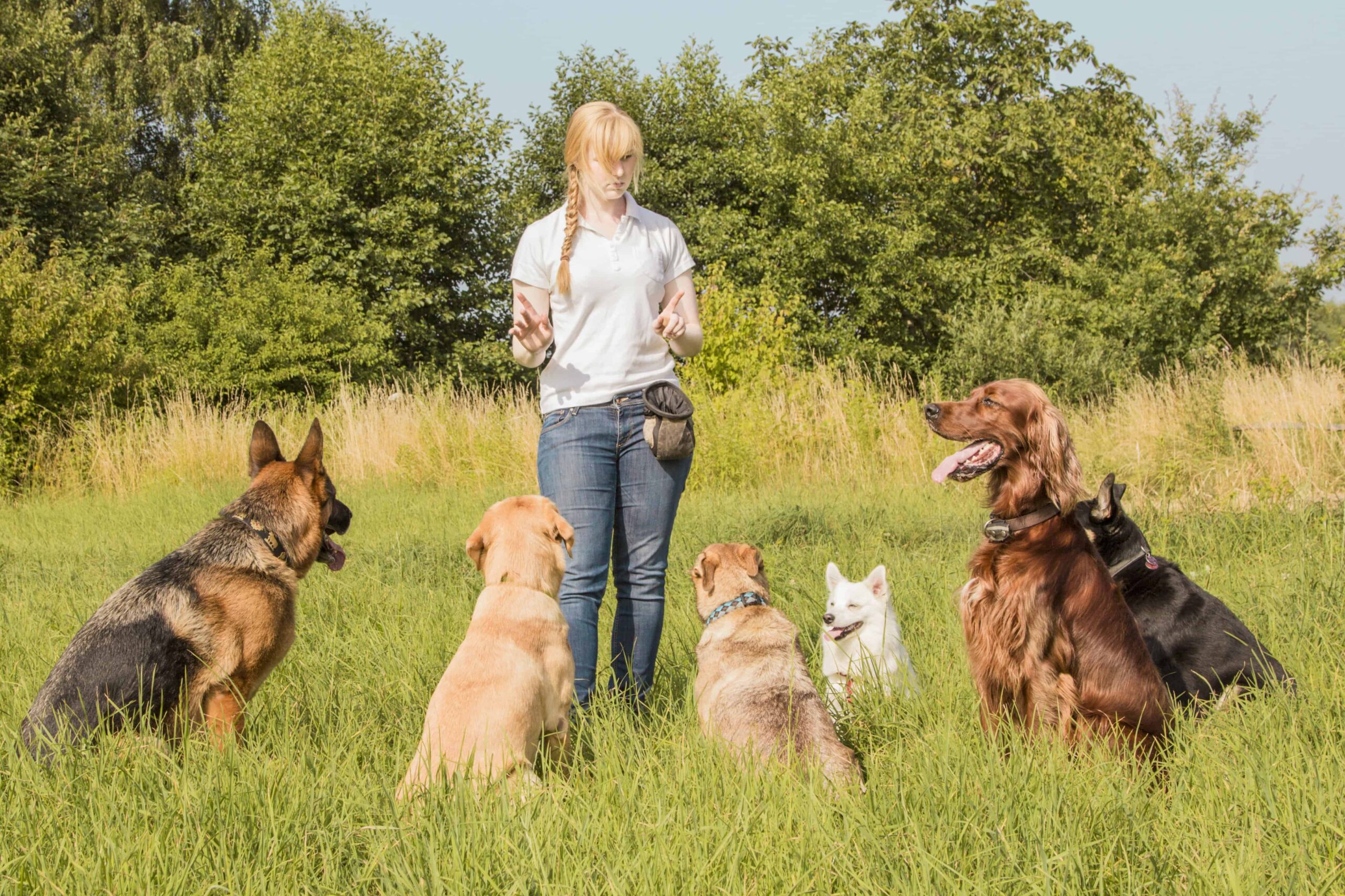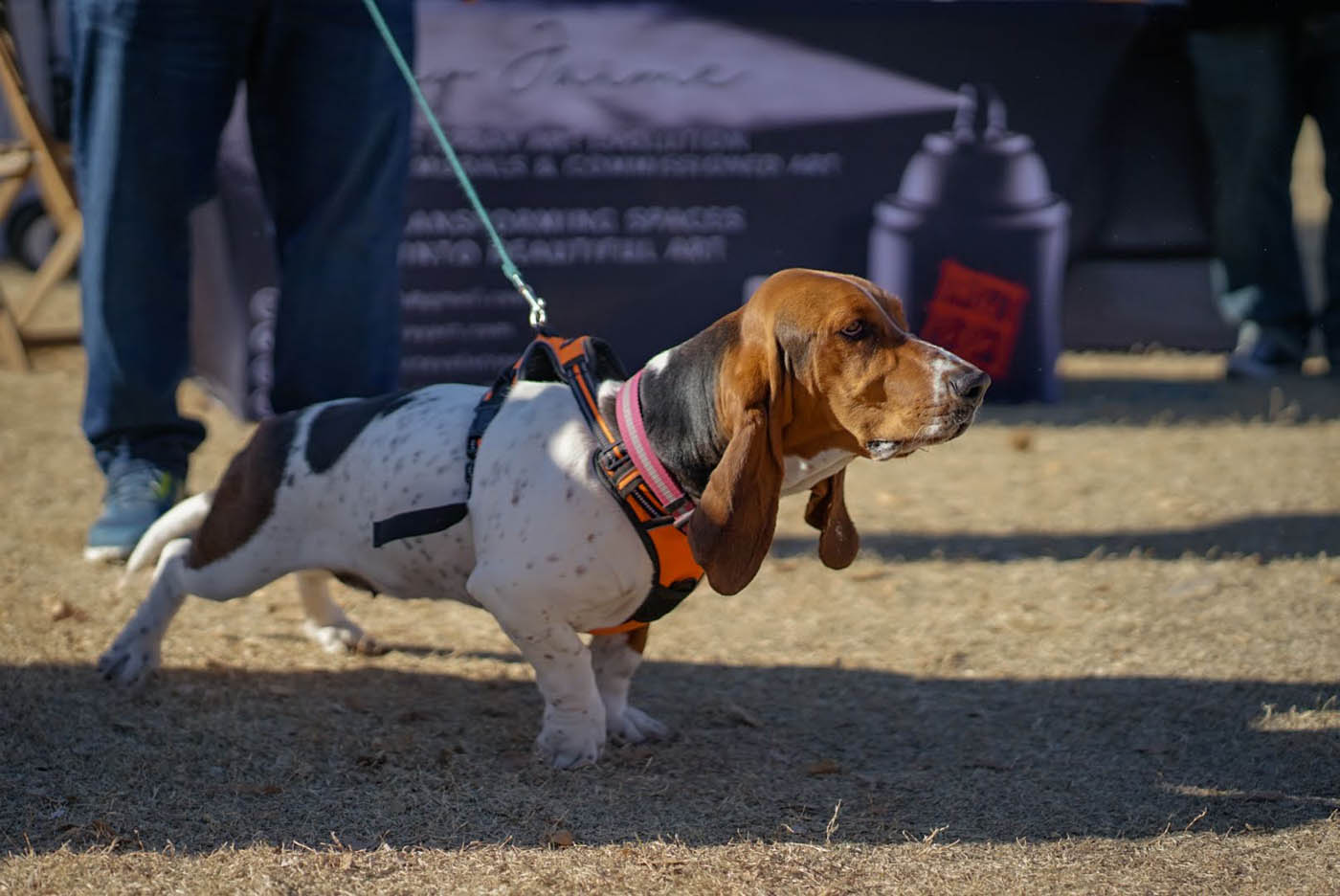Unleash Potential with Dog Training Near Me: Locate Your Local Experts
Unleash Potential with Dog Training Near Me: Locate Your Local Experts
Blog Article
Unlock Your Pet's Prospective: Proven Pet Dog Training Strategies for Success
Effective dog training is a nuanced procedure that pivots on understanding canine actions and utilizing medically backed strategies. By incorporating positive reinforcement, developing clear commands, and focusing on socializing, dog proprietors can cultivate an efficient partnership with their family pets.
Comprehending Canine Behavior
Recognizing canine actions is vital for efficient training and promoting a favorable connection in between pet dogs and their owners. An extensive grasp of canine body movement, articulations, and social interactions is vital for recognizing their requirements and feelings. Canines communicate primarily with non-verbal hints; for instance, a wagging tail might show exhilaration, while pinned ears can signal anxiety or entry.

Furthermore, environmental factors play a substantial function in shaping a pet dog's actions. Adjustments in routine, new surroundings, or the visibility of unknown individuals can lead to tension or stress and anxiety in canines. Identifying these triggers makes it possible for owners to mitigate damaging reactions and develop suitable training strategies.
Ultimately, a deep understanding of pet dog habits lays the structure for effective training approaches, enhancing both actions and the overall bond in between the canine and its owner. dog training charlotte. This expertise is important for cultivating a well-adjusted, delighted canine companion
Favorable Support Techniques
Reliable training counts greatly on positive reinforcement methods, which have been shown to yield substantial cause forming desired behaviors in canines. This technique includes awarding a pet dog for showing specific behaviors, therefore increasing the likelihood that these behaviors will certainly be duplicated. Incentives can take numerous forms, including treats, praise, toys, or play, relying on what encourages the individual canine.

It is important to progressively terminate rewards as the pet learns the actions, transitioning to periodic reinforcement. This approach maintains the behavior gradually while stopping reliance on constant incentives. By focusing on favorable reinforcement, instructors can cultivate a relying on relationship with their canines, promoting a healthy and balanced and participating training atmosphere that boosts overall obedience and efficiency.
Developing Regular Commands
A basic aspect of effective dog training is the establishment of consistent commands. Consistency in commands is crucial for efficient interaction in between the pet dog and the instructor. When commands are uniform, dogs discover to link certain words with desired actions, which increases the training procedure and boosts understanding.
To develop regular commands, it is vital that all member of the family use the same terminology and motions. For instance, if a single person uses "rest" while another says "rest down," it see this page can produce confusion for the pet dog. Select clear, distinct words for commands and make certain everybody associated with the pet dog's training complies with these options.
Furthermore, repeating is crucial. Enhance commands via regular practice, making sure that the pet receives ample chances to respond appropriately. When a dog efficiently follows a command, instant positive support needs to follow. This might be in the form of treats, praise, or playtime, strengthening the link between the command and the action.
Last but not least, hold your horses. Developing regular commands takes time and effort. With devotion and clarity, you will assist your pet create a solid understanding of expectations, eventually resulting in a well-behaved buddy.
Socializing and Direct Exposure
Socializing a dog is necessary for cultivating a certain and well-adjusted companion. This procedure entails subjecting your dog to a variety of environments, people, and various other pets to establish their social skills and versatility. Early socializing, preferably in between the ages of 3 to fourteen weeks, is important, as it lays the groundwork for look at this site a dog's future behavior.
During socialization, goal to offer positive experiences in different setups, such as parks, busy roads, and homes with various other animals. Present your pet dog to numerous stimuli, consisting of noises, views, and smells, ensuring that each experience is fulfilling. This direct exposure helps alleviate worry and anxiousness, leading the means for a much more resistant canine.
Participating in regulated team play sessions with other dogs can also enhance social abilities, educating your family pet ideal interactions and limits. Always monitor your pet's convenience degree during these experiences, gradually enhancing direct exposure as their confidence expands. Remember, the goal is to develop an all-around animal that prospers in varied scenarios, promoting an unified partnership with both human beings and other animals. Prioritizing socializing will considerably contribute to your canine's general joy and habits throughout their life.
Overcoming Common Training Obstacles

Pets may battle to concentrate in hectic or strange settings. Slowly desensitize your pet dog to distractions by starting training in a silent atmosphere and gradually presenting even more stimulations as they come to be proficient.
Additionally, behavioral issues like jumping or excessive barking can become frustrating. Address these by teaching alternate behaviors, such as sitting comfortably when greeting guests. Consistency and perseverance are critical; enhance wanted behaviors consistently and avoid abuse, which can lead to complication.
Finally, recognize that each pet is distinct, and training timelines may vary. Dressmaker your strategy to your canine's individual Get More Info demands, and seek specialist guidance if necessary. With perseverance and the right methods, getting over these obstacles can lead to a well-trained, delighted canine companion.
Conclusion
Finally, opening a canine's possible requires a detailed technique that includes an understanding of canine habits, the application of favorable reinforcement techniques, and the establishment of regular commands. Early socialization and direct exposure to diverse settings better improve a pet dog's flexibility and confidence. By dealing with typical training difficulties with tailored approaches and patience, a participating and unified connection in between pet and handler can be promoted, ultimately resulting in a well-behaved companion efficient in growing in various situations.
Effective dog training is a nuanced procedure that hinges on understanding canine habits and utilizing clinically backed techniques.Recognizing dog actions is crucial for reliable training and cultivating a positive connection in between pet dogs and their proprietors.Effective training depends greatly on positive reinforcement methods, which have been shown to generate significant results in shaping desired actions in pets. When commands are uniform, pet dogs learn to associate particular words with wanted actions, which speeds up the training process and improves understanding.
In verdict, unlocking a dog's potential requires a comprehensive strategy that integrates an understanding of canine actions, the application of favorable reinforcement methods, and the establishment of constant commands.
Report this page